Getting to Know Magnis Putri Exela Festival Manager of Sewon Screening 10 ‘Persistence’
- Majesti Anisa
Sewon Screening as a student film festival driven by the collective of the ISI Yogyakarta Film and Television Student Association, once again drew attention during the celebration of its 10th edition last year. Behind its success stands Magnis Putri Exela, the Festival Manager, who led and managed the festival under the theme of Persistence. So, what was Magnis’ journey like throughout managing Sewon Screening 10?
How Magnis Became the Festival Manager of Sewon Screening 10
Magnis shared that she was rarely on campus at one point because she was often involved in film shooting projects. That made her feel like she was missing out on shared moments with her friends. “I felt that Sewon Screening 10 came at just the right moment for me to have a reason to be on campus again,” she said. The selection process for the Festival Manager was conducted through deliberation, where everyone was free to nominate candidates. The election system ran similarly to an official election, with three neutral individuals overseeing the voting process. “Turned out, everyone chose me. I think there were only about ten people who didn’t vote for me. The rest all voted for me,” she recalled. Magnis assumed her peers voted for her because of her previous experience in the film festival world. She had previously been involved in the Kotabaru Heritage Film Festival and the Documentary Film Festival. “Maybe they thought I wasn’t a stranger to festivals anymore,” she added.
Magnis’ Role as Festival Manager of Sewon Screening 10
Magnis explained that her specific role as Festival Manager was to handle managerial tasks ensuring that all program needs were met so the festival’s ideas and plans could be implemented well. “For example, if the program team planned a public lecture, I would be the one to prepare the hospitality, the funding, and all the basic operational needs to ensure the program runs,” she explained. As Festival Manager, Magnis supervised various technical divisions involved in festival operations, including funding, hospitality, production, transportation, and more. With a clear team structure, Magnis acted as the liaison between planning and execution, making sure every aspect ran smoothly until the festival’s D-day.
Keeping the Fire Alive While Managing Sewon Screening 10
Managing a collective student film festival was no easy task. Magnis revealed that Sewon Screening 10 relied entirely on donations, self-organized funding, contributions, grants, and campus assistance not from ticket sales. The hardest part, according to Magnis, was managing human resources, i.e., the Sewon Screening 10 committee. In a typical setup, if a manager had the funds to pay their team, setting boundaries and work scopes would be much easier. But in her position, Magnis couldn’t pay the team since everyone contributed financially to make the festival happen. The year-long preparation was filled with passion and intensity. The biggest challenge for Magnis was maintaining the vision and enthusiasm of hundreds of voluntary committee members. Everyone had different dreams: some wanted to meet filmmakers, some to engage with communities, others to learn programming or technical skills. Her challenge was how to accommodate all these dreams so they could stay motivated throughout the festival. “You can’t be bossy here because we’re all in the same position we’re all doing this voluntarily. So I had to watch my words, my attitude, my communication. I had to distinguish personal from professional boundaries,” she said.
Magnis Almost Pawned Her Motorcycle Before the Festival
During the festival preparations, Magnis and Raflie, Program Director of Sewon Screening 10, faced a dilemma regarding government grant funding which would only be disbursed during the festival, while operational needs required upfront payment. “We were actually lucky to receive a lot of funding both from the government and private institutions. But with government funding, there’s a procedure where you must report first or carry out the agenda in parallel with the fund release. But in execution, you often need the money first before anything can happen,” explained Magnis. At one point, Magnis even considered pawning her motorcycle until the government funds came through. That critical moment was narrowly avoided when Raflie managed to secure emergency funding. This experience, instead of breaking them, strengthened their bond. “It made us realize just how serious and committed we were. We were thinking about each other. We respected each other more after that,” said Magnis. That experience made them value each other’s roles more and understand the importance of mutual support.
The Freshness of Sewon Screening 10 Through Magnis’ Eyes
As a volunteer who had participated since Sewon Screening 8, Magnis emphasized that the festival’s freshness lies in its boldness to try new things. One major change in the 10th edition was restructuring the organizational chart separating previously merged divisions to optimize productivity and balancing workload distribution. The new structure, implemented over a year, proved effective. Another major leap was using the ISI Yogyakarta Concert Hall throughout the festival previously reserved only for opening and closing ceremonies. This experiment revealed a much higher-than-expected audience enthusiasm. “In my opinion, it was a fresh experiment, not necessarily a fresh achievement,” said Magnis. The spirit of Sewon Screening 10 was about daring to try and learn together, using the 10-year milestone as a push to explore. The pressure of the anniversary turned into positive energy, with fulfilling feedback.
Sewon Screening as a Collective Space for Experimentation
Magnis believes Sewon Screening’s main strength lies in its spirit of regeneration and collective trust built over a decade. With an active regeneration system, Sewon Screening doesn’t struggle to find new committee members. In fact, even before the current festival begins, people already ask about next year’s edition. In previous editions, volunteers often dreamed about the roles they’d take on in future events showing a strong sense of ownership. Sewon Screening is a space to try out new roles without fear of failure. Magnis, for instance, started as a liaison officer in Sewon Screening 8 and rose to Festival Manager by the 10th edition. Raflie, without a background in programming, successfully served as Program Director. This environment nurtures community confidence and trust between generations a rare energy among student film festivals. Despite fluctuating dynamics, there are always people ready to continue the legacy.
Gaining Confidence from Managing Sewon Screening
Sewon Screening serves as a practical learning platform for ISI Yogyakarta students, especially in film and television production. “At ISI, many students come from production backgrounds, but thanks to Sewon Screening, everyone has had a taste of running a film festival which you don’t get everywhere,” said Magnis. That experience becomes a valuable asset for alumni to step into other festivals beyond campus. “Maybe someone was a Program Director or program team member at Sewon Screening that builds confidence, because they learned a lot there. They’ll feel ready to try working in larger festivals.”Magnis herself started as a liaison officer, then treasurer, before becoming Festival Manager. Now she feels more confident being invited to manage larger film festivals.
Sewon Screening’s Collaborations with Film Communities
Sewon Screening has long built strong relationships with local film communities and independent filmmakers. According to Magnis, regeneration within Sewon Screening is not a major issue because community relationships have been established for years. “It’s not a big problem since we’ve been friends from previous SS editions and often meet through the festival,” she explained. Last year, Sewon Screening designed a unique program with independent filmmakers using a more personal approach and deeper discussions especially with filmmakers whose work aligned with the Persistence theme. Many filmmakers were excited to screen their works in a student driven space like Sewon Screening, which offers free screenings to diverse audiences, encouraging direct and interactive dialogue. Some collaborations even emerged from filmmakers’ own initiatives. One example was a joint project with Multatuli and Greenpeace, which invited Sewon Screening 10 to host a program highlighting Papua from a local perspective. “We already had a program for the Palestine Cinema Archive. One day, a filmmaker reached out saying, ‘You have a program for Palestine how about a program focused on Papua?’ And we thought, ‘That’s also important and interesting,’” said Magnis. Such collaborations not only enrich Sewon Screening’s programs but also open up opportunities for screenings in other spaces afterward.
Audience Presence as Sewon Screening Fuel
Magnis shared that the loud applause from audiences at each program became magical moments that instantly erased a year’s worth of fatigue. “Especially during the closing film, the applause was thunderous. It really washed away all the tiredness,” she said.
Beyond applause, sincere thank-yous from audience members meant the most to Magnis. It showed that the festival truly impacted people’s lives. Some attendees even shared how Sewon Screening helped them whether by meeting thesis interviewees, watching rare films, or networking with communities and filmmakers. “The audience’s presence is our fuel to keep organizing alternative screenings in the years and decades to come. They are our main driving force,” said Magnis.
Weird in a Good Way – Magnis’ Hopes for Sewon Screening’s Future
Magnis envisions Sewon Screening evolving into a festival that loves to experiment, research, and showcase ideas boldly. She hopes it remains rooted in student collectivity not dictated by donors or outside authorities. She encourages the team to explore creatively within available spaces. “I hope that in the future, the programming and structure remain bold, experimental, maybe even a little weird in a good way. That kind of curiosity is the root of critical thinking,” she said.
She hopes Sewon Screening continues to grow as a space for student collectivity not bound by the standards of bigger festivals, but setting their own standards. “We have our own festival, our own space, our own people. So I hope this becomes an explorative space filled with curiosity about many things,” said Magnis.
Magnis’ Message for the Team Behind Sewon Screening 11
Organizing a long-term festival is draining in terms of energy, time, money, and attention. Usually, committee members could still take on shooting projects or freelance gigs, but now they must stay focused and serious. “For nearly a year, I didn’t take on any shoots. I went on a shooting hiatus. And there were days I felt sad about not accepting projects I really wanted,” said Magnis. Her message for the Sewon Screening 11 team: don’t forget to have fun. There will be misunderstandings, miscommunications, exhaustion, and unfulfilled plans but enjoy the process. “Create programs you genuinely love. Find collaborators you really admire. Find a goal that makes you and your team happy. Because if you’re not having fun, it’s a waste who are you making this festival for, if not for yourselves first?” she said.
While timelines are important, Magnis reminded the team not to be too rigid. She encouraged chatting beyond festival matters, staying friends, and separating personal from professional affairs. In programming and festival design, she urged not to focus too much on existing patterns. If you want something go for it. “At Sewon Screening 10, many ‘impossible’ things happened,” said Magnis. “Don’t forget, this festival is collective. Everyone shapes it. It’s also formed by your personalities and inspirations. When designing the program or the festival’s identity, reflect on your team. Because it’s those small building blocks that make your festival stronger and able to move forward,” she concluded.
By Majesti Anisa
Editor Satya Din Muhammad
Translator Debytha Nela Mv.

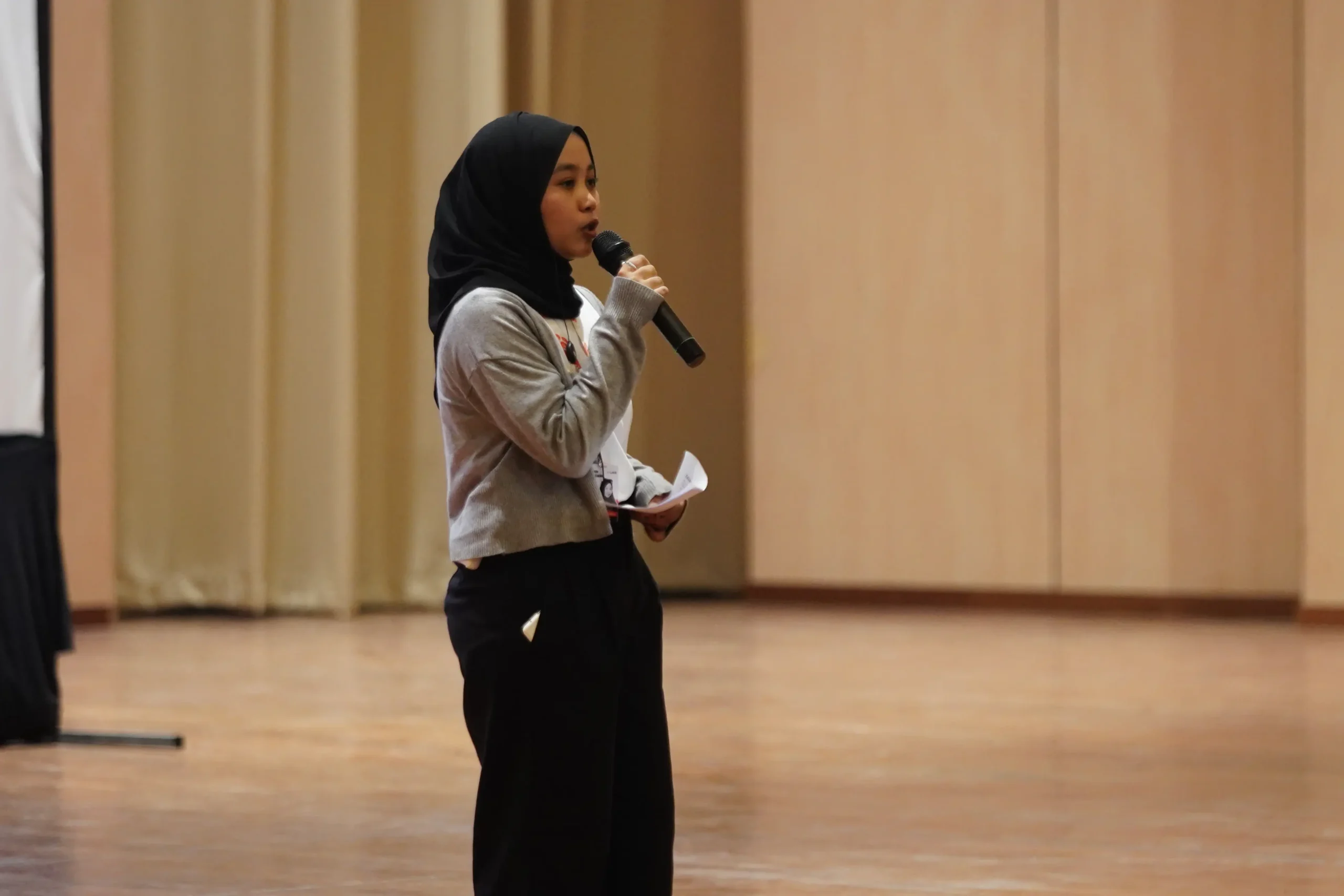
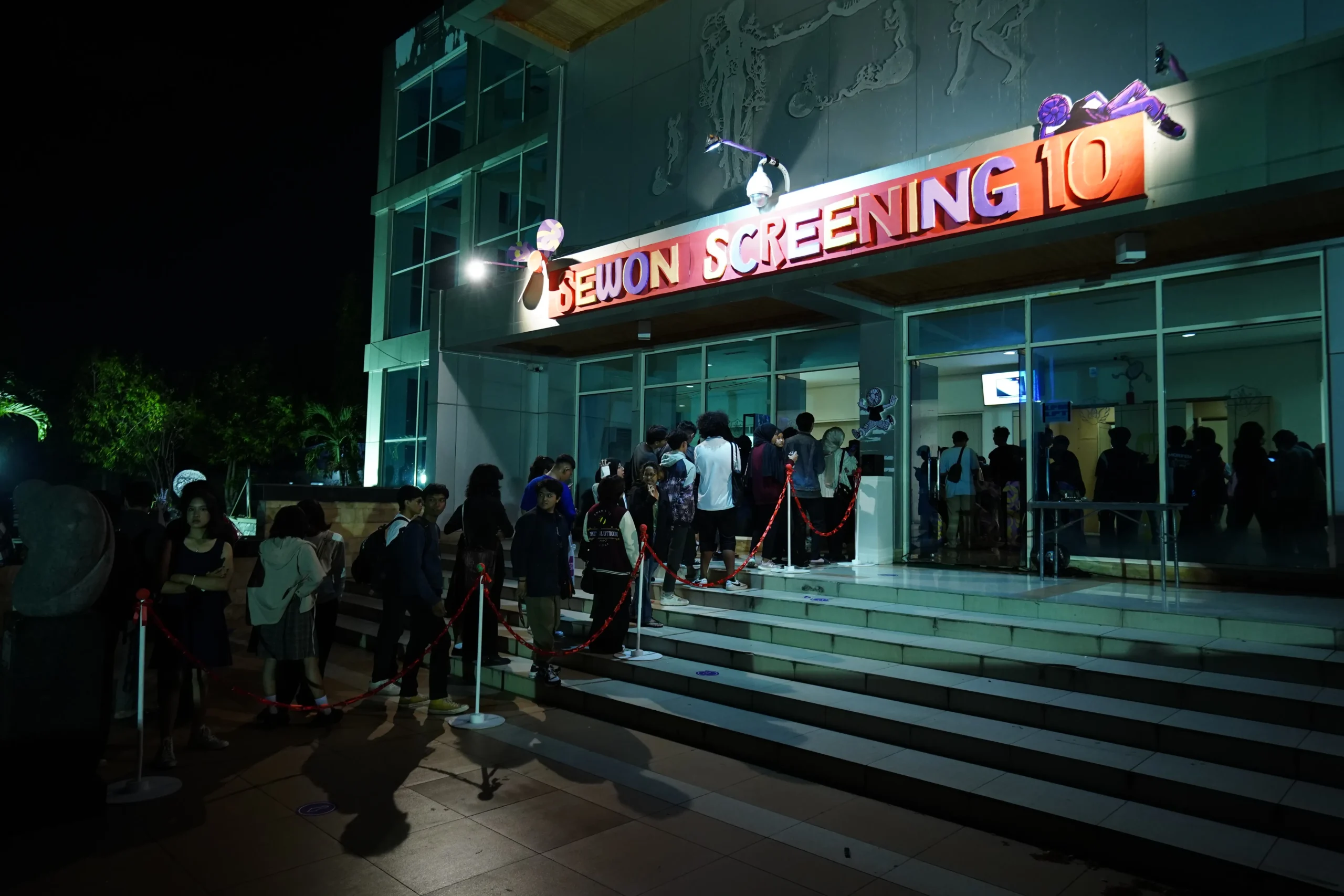
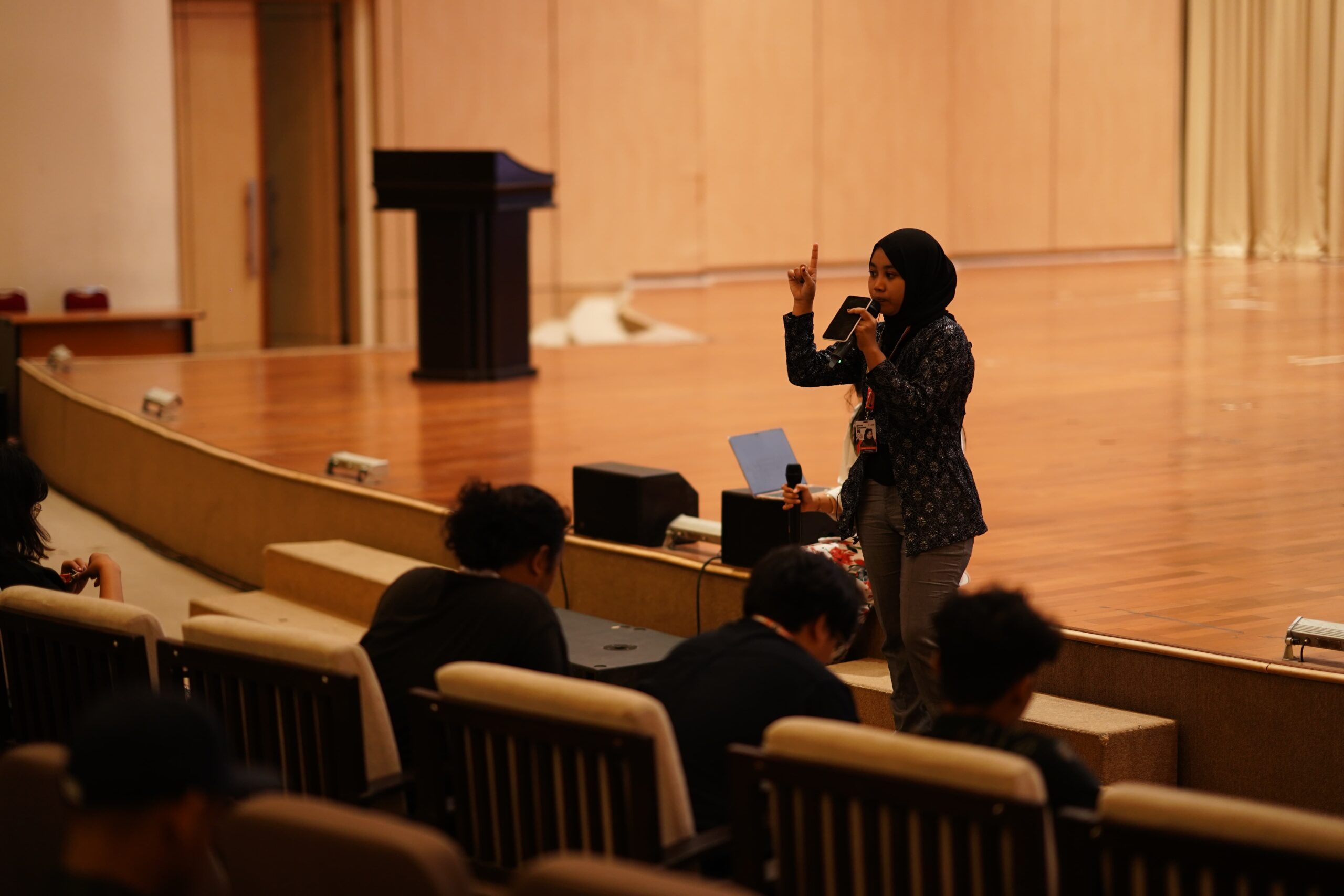
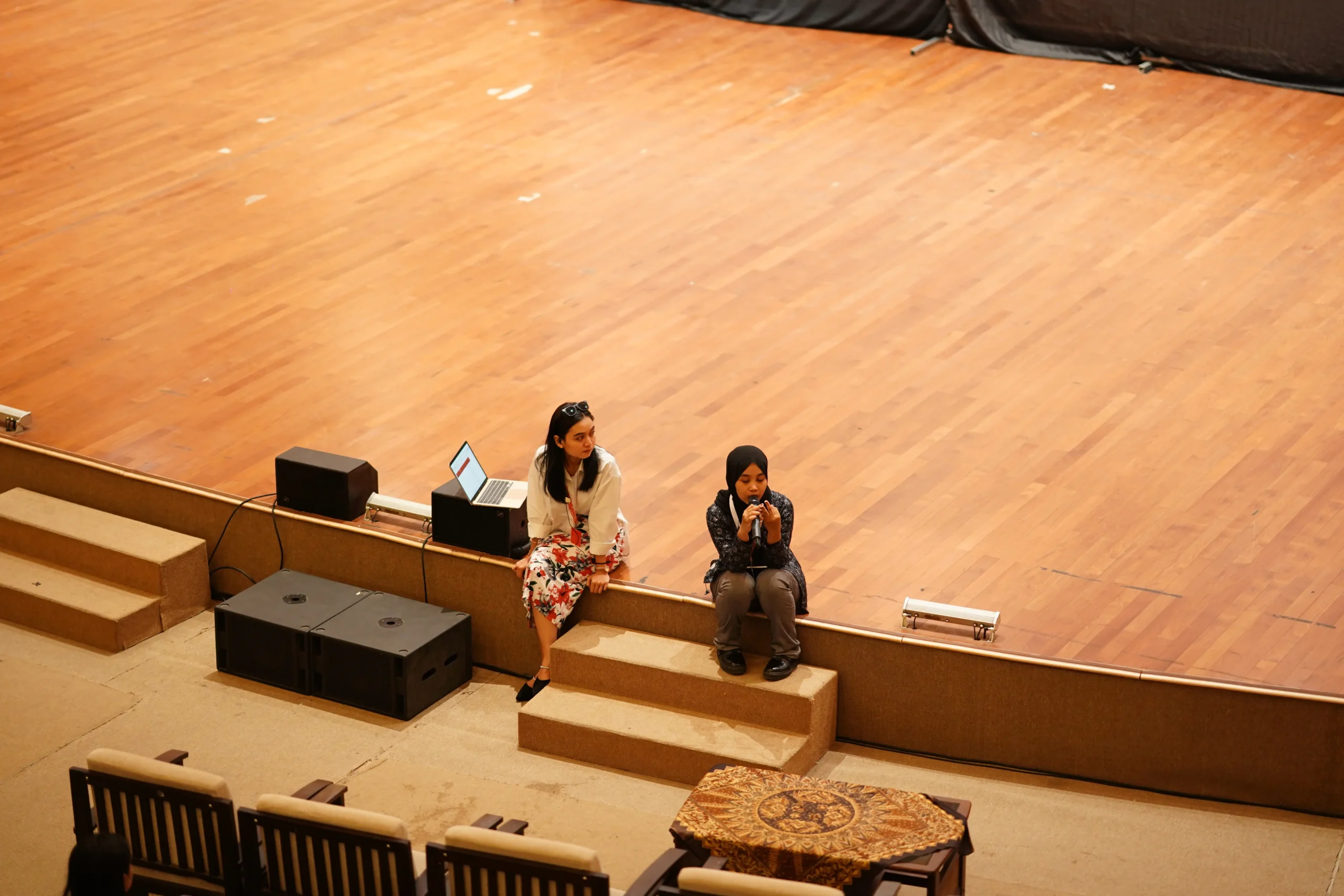
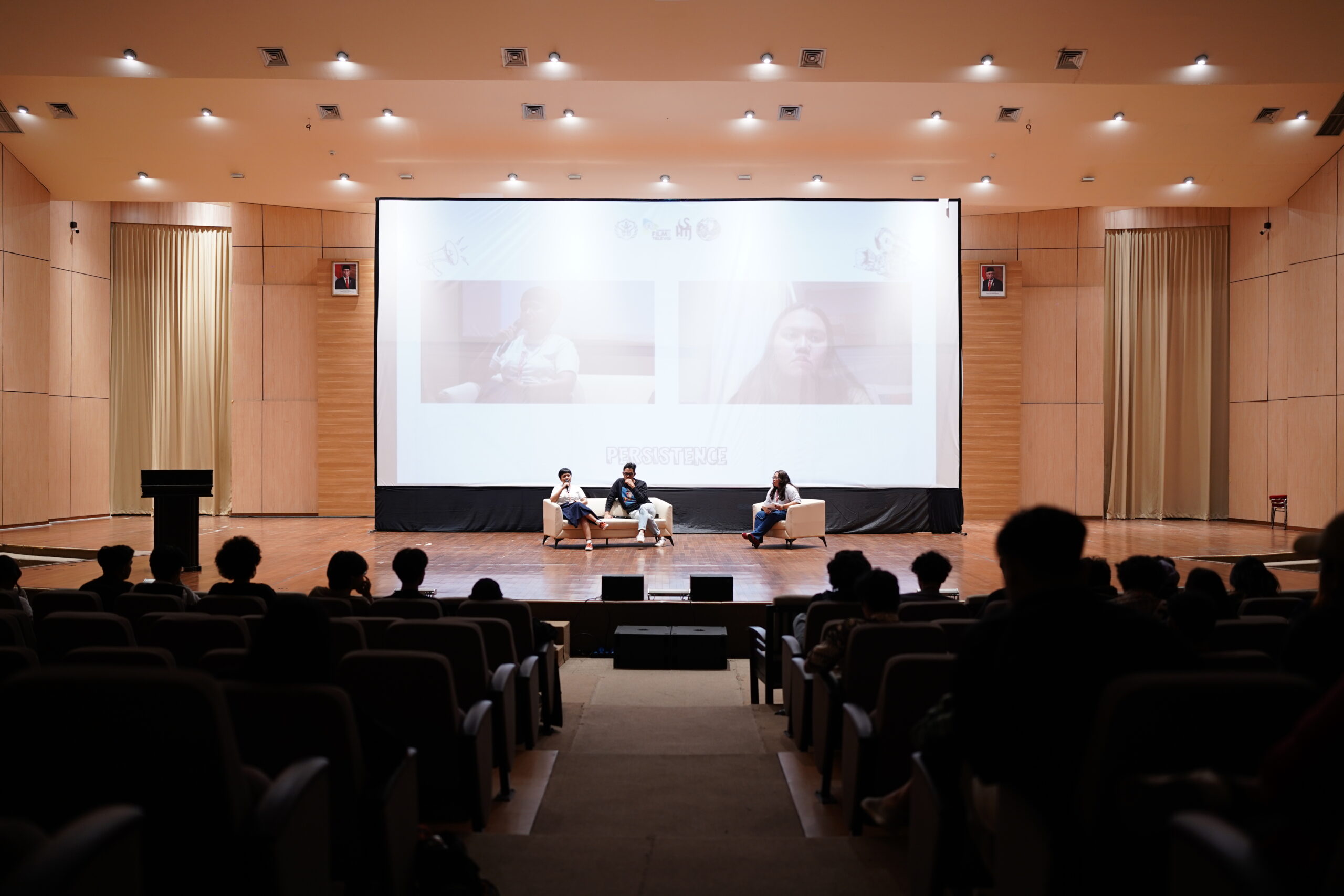
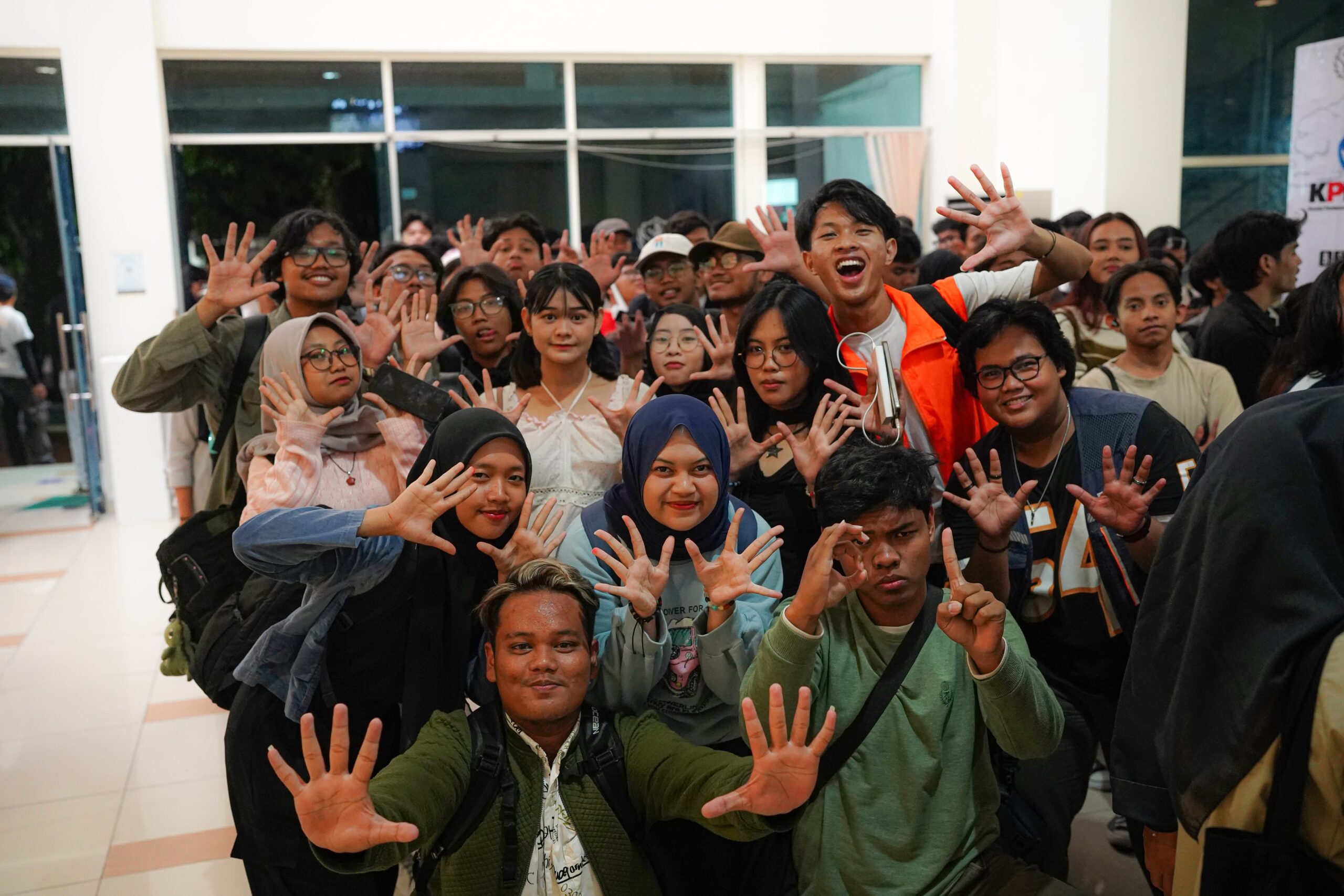

Comments • 0
Write your comment
Komentar • 0